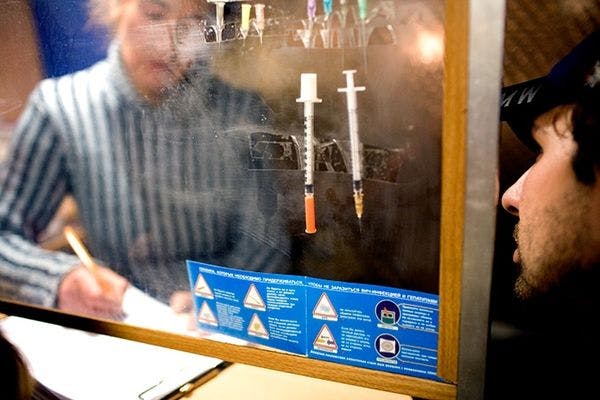Los programas de reducción de daños deben ser más flexibles para funcionar de forma adecuada en Europa Oriental
Las organizaciones de la sociedad civil han expresado su temor de que la rigidez de muchos programas de terapia de sustitución de opioides podría ahuyentar a aquellas personas que más los necesitan. Más información, en inglés, está disponible abajo.
Suscríbase a las Alertas mensuales del IDPC para recibir información sobre cuestiones relacionadas con políticas sobre drogas.
Restrictive policies that can sometimes prevent people from keeping their jobs could be compromising the effectiveness of Global Fund-supported opioid substitution therapy programs across Eastern Europe and Central Asia, civil society representatives from around the region told Aidspan.
Without improvements to the quality and effectiveness of these programs, they risk driving away the very people who are most in need of the services - and could undermine the sustainability of these programs once ownership transitions to national governments.
"We want to start talking about OST program challenges, which are not only coverage and finances that are mainly discussed by the donors and NGOs, but also the effectiveness and quality of these programs,” said Andrey Yarovoi, board member for Association of Substitution Treatment Advocates of Ukraine (ASTAU). They consider the fact that OST programs are still pilot, vertical programs that have yet to be integrated into the national health service one of the biggest impediments to their success.
Most doctors who work with people who inject drugs consider OST to be the same drug with different packaging, whereas drug users see it as medical treatment. This disconnect means that program participants are not often treated as patients, and are discriminated against by medical professionals.
Regionally, similar problems with OST therapy have been identified: those enrolled are restricted in their movements due to the need to check in daily to receive their dosage. This means they have a hard time getting or staying in jobs, due to the rigors of being part of the program.
Click here to read the full article.
Keep up-to-date with drug policy developments by subscribing to the IDPC Monthly Alert.
